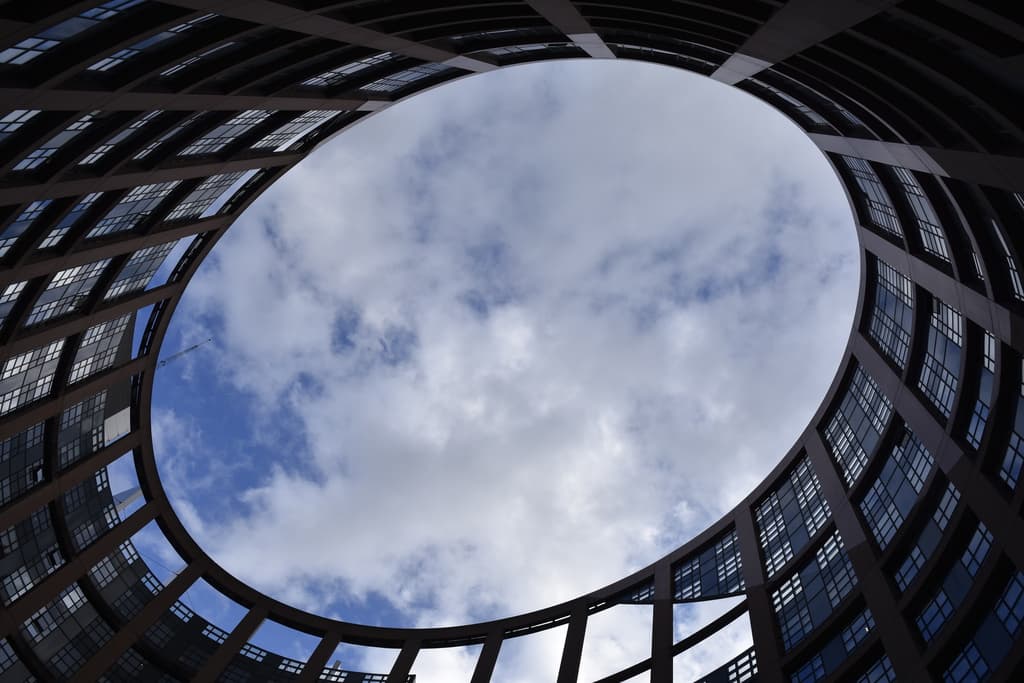The silly season is in full swing in the European Parliament as party groups recruit new members ahead of the start of the mandate period.
Hungarian Fidesz may once again find itself on the outside looking in, torn between influence and size.
The European Parliament's premises in Brussels are like a high school in mid-August after the European elections. Newcomers stare wide-eyed around them, searching for their places, while the experienced ones size each other up to see who has developed how.
Everyone is deeply engaged in discussions about which parties will cooperate with which.
There are many negotiations going on at the same time. It's a very formative phase for all political groups, and a period when a lot is happening – just as it should be, notes Swedish MEP Emma Wiesner (C).
Who will be third?
C and L are part of the liberal party group RE, which is engaged in a tight battle with the EU-sceptic conservative ECR to be the third-largest group in the parliament.
RE appears to be retaining the Dutch VVD in the group, despite criticism of the party's deal with the far-right on the next Dutch government. On the other hand, the Czech ANO is leaving, having become increasingly non-liberal under the leadership of former Prime Minister Andrej Babis.
The pan-European movement Volt is likely to choose The Greens instead of RE.
ECR, meanwhile, has picked up, among others, the new Romanian nationalist party AUR – which is said to have led the Hungarian ruling party Fidesz to reject an ECR membership.
Where will Fidesz end up?
Charlie Weimers (SD) is simultaneously sceptical about Fidesz altogether, not least because admitting the Hungarians could make other party groups unwilling to cooperate with ECR.
If it's the case that a Fidesz membership would make political influence impossible for us, we have to take that into account, says Weimers.
Fidesz may instead end up in the far-right group ID, among the non-attached or even in a completely new group with other EU-critics from Eastern Europe and parties worried that ID will be totally dominated by the French National Rally.
Here are the party groups in the European Parliament right now (with the largest parties included and Swedish members in parentheses):
Christian Democratic Conservative EPP – 189 members (29 from German CDU/CSU, 22 from Spanish PP, 4 from M and 1 from KD)
Social Democratic S&D – 136 members (21 from Italian PD, 20 from Spanish PSOE, 5 from S)
EU-sceptic Conservative ECR – 83 members (24 from Italian Brothers, 20 from Polish PIS, 3 from SD)
Liberal RE – 74 members (13 from French BE, 6 from Slovak PS, 2 from C and 1 from L)
EU-critical Nationalist ID – 58 members (31 from French RN, 8 from Italian Lega, no Swedes)
Green/EFA – 51 members (12 from German Greens, 5 from French LE/EELV, 3 from MP)
Left GUE/NGL – 39 members (9 from French LFI, 4 from Greek Syriza, 2 from V)
Non-attached – 45 members (15 from German AFD, 10 from Hungarian Fidesz, no Swedes)
Unclear – 45 members (7 from Czech ANO, 6 from German BSW and Polish Konfederacja, no Swedes)
Source: European Parliament






